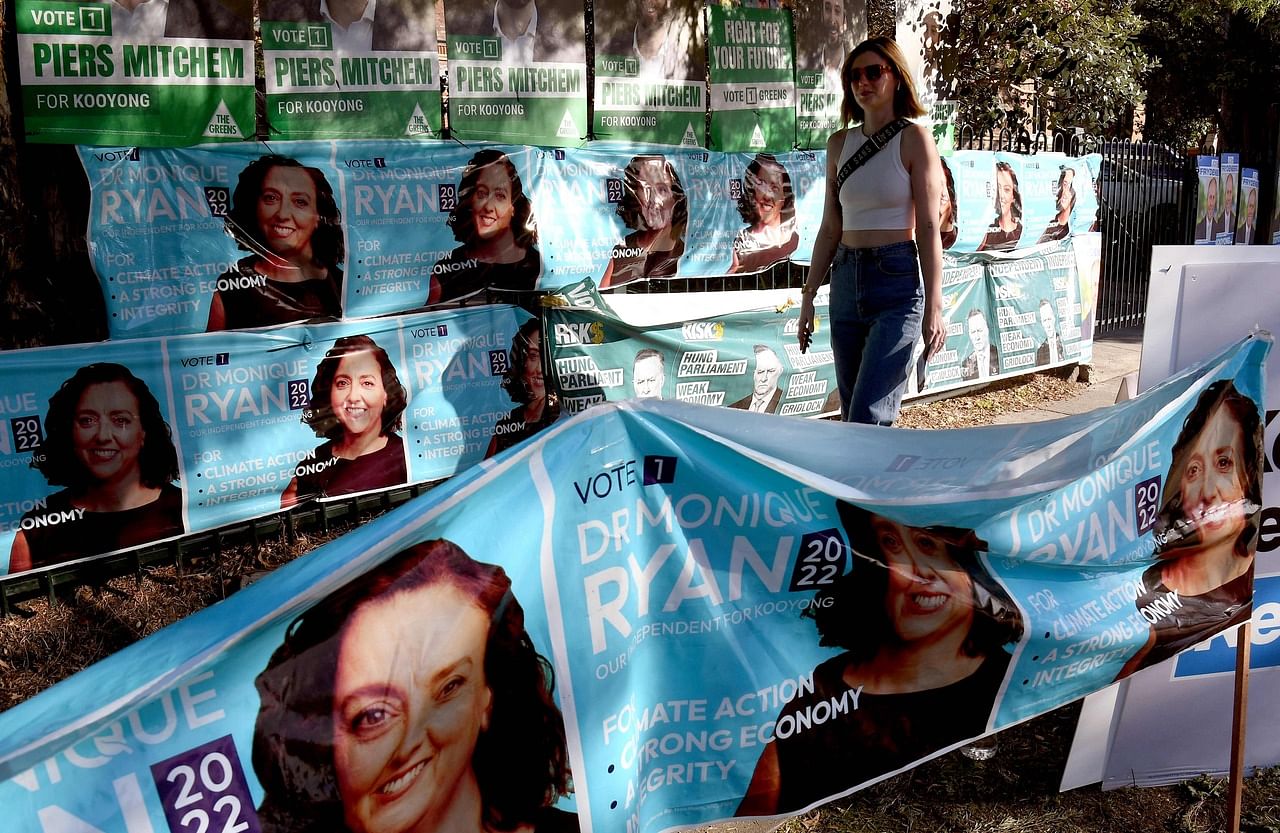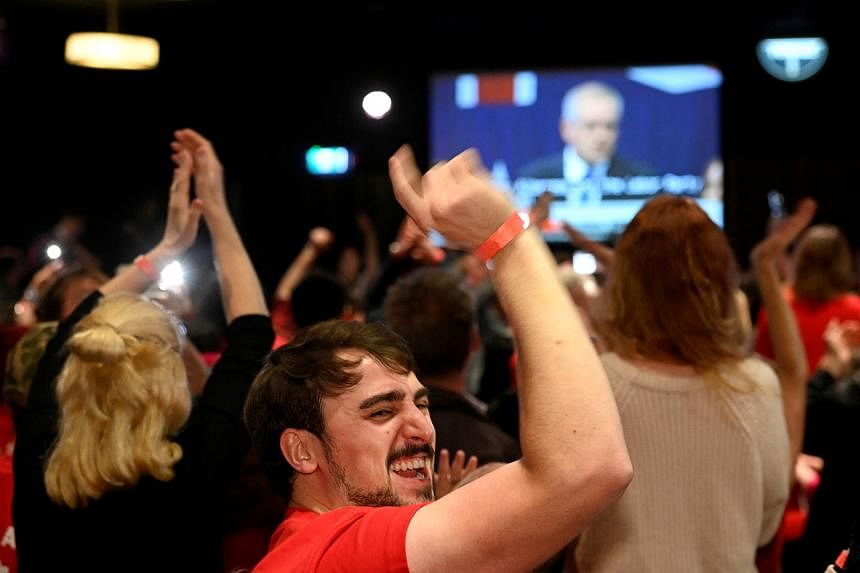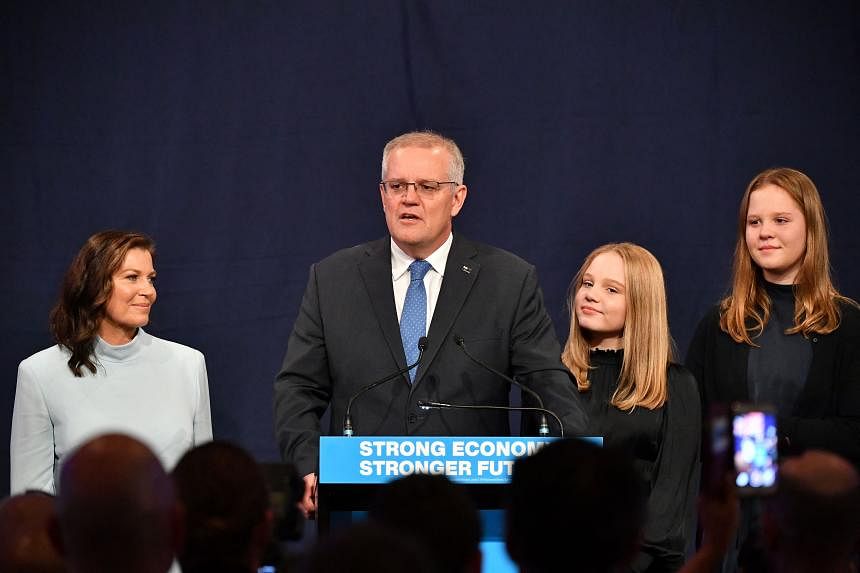SYDNEY - Australia’s Labor opposition leader Anthony Albanese will be the next prime minister after the ruling Liberal-National coalition suffered a devastating federal election defeat on Saturday (May 21).
Mr Albanese, 59, who has promised to address cost-of-living concerns but adopted a largely risk-free and unambitious agenda, said he wanted to unite the country around a positive “journey of change”.
“Tonight, the Australian people have voted for change,” he said in his victory speech.
“I want to bring Australians together. I want to seek our common purpose and promote unity and optimism, not fear and division.”
Mr Albanese, who will be the 31st Australian prime minister, will replace Mr Scott Morrison, who has held the office since 2018.
While last night marked an end to nine years of the coalition’s rule, it was not yet clear whether Mr Albanese will win an outright majority in the 151-member House of Representatives or whether he will need to rely on the support of Greens or independent MPs.
With 63 per cent of votes counted at press time, Labor had won 72 seats in comparison with the 55 garnered by Mr Morrison’s party.
A staggering 11 seats were won by independent and minor party candidates, while a further 13 seats were too close to call.
Early election results marked a crushing plunge in support for the coalition, which won 77 seats at the last election in 2019.
But Labor, too, won fewer direct votes than in 2019, as the nation made a historic shift away from supporting major parties towards independents and minor parties, which are now effectively a third plank in Australian politics.
Mr Albanese, who was raised by a single mother in public housing in Sydney, is a veteran MP who entered Parliament in 1996.
Despite belonging to Labor’s left-wing faction, he ran on a centrist platform that avoided ambitious plans and backed many of the coalition’s major policies on issues such as taxation and defence.
He has promised to boost spending on childcare, education, universities and aged care, as well as stronger carbon emission reduction targets.
Mr Albanese has said he will quickly be sworn in as prime minister so that he can attend a meeting in Tokyo on Tuesday of leaders of the Quad grouping, which comprises the United States, Japan, India and Australia.
He will be accompanied by his incoming foreign minister, Ms Penny Wong, the first Asian-Australian to hold the position.
Delivering a gracious concession speech on Saturday night, Mr Morrison said he took responsibility for the election loss and will resign as Liberal party leader.
He said the plunging support for the major parties reflected the “disruption” that Australians have experienced in recent years, particularly during the pandemic.
“This has been a time of great upheaval over these past few years,” he said. “And it has imposed a heavy price on our country and on all Australians.”
Despite the nation’s strong economic recovery, Mr Morrison’s personal approval ratings plunged in the past year over concerns about his handling of bushfires and floods, his failure to quickly roll out Covid-19 vaccines, and his refusal to adopt ambitious climate targets.
One of the spectacular results on Saturday was the show of support for minor parties and independents, who collectively were on track to win about 12 seats, including at least two Greens MPs. More than 30 per cent of voters supported candidates who were not from the major parties.
This was a result that, if it continues, will upend Australia’s two-party system of government and could make it increasingly difficult for major parties to win an outright parliamentary majority.
In a worrying sign for the Liberal party, several of its most prominent and more moderate MPs lost to high-profile independent women candidates in inner city seats who promised stronger action on climate change, gender equality and anti-corruption measures.
Mr Josh Frydenberg, the Treasurer and a popular MP who was expected to take over the coalition’s leadership and was widely seen as a future prime minister, was on track to lose his seat in Melbourne to an independent, Dr Monique Ryan, a local paediatric neurologist.
With over 51 per cent of votes for the inner-Melbourne seat of Kooyong counted last night, Dr Ryan was on track to win by 54 per cent to Mr Frydenberg’s 46 per cent.
The coalition’s loss of some of its more moderate MPs could see the party move further to the right.

Mr Albanese and his most senior ministers will be sworn in on Monday.
Early returns suggested the Greens had also made ground, looking to pick up to three seats in Queensland.
Greens leader Adam Bandt, who retained his inner city Melbourne seat, said climate was a major issue for voters.
“There was an attempt from Labor and Liberal to bury it, and we were very clear about the need to tackle climate by tackling coal and gas.” Mr Morrison and Mr Albanese earlier cast their votes in Sydney after making whistle-stop tours across marginal seats in the final two days of a campaign dominated by rising living costs, climate change and integrity.
As Labor focused on spiking inflation and sluggish wage growth, Mr Morrison made the country’s lowest unemployment in almost half a century the centrepiece of his campaign’s final hours.





